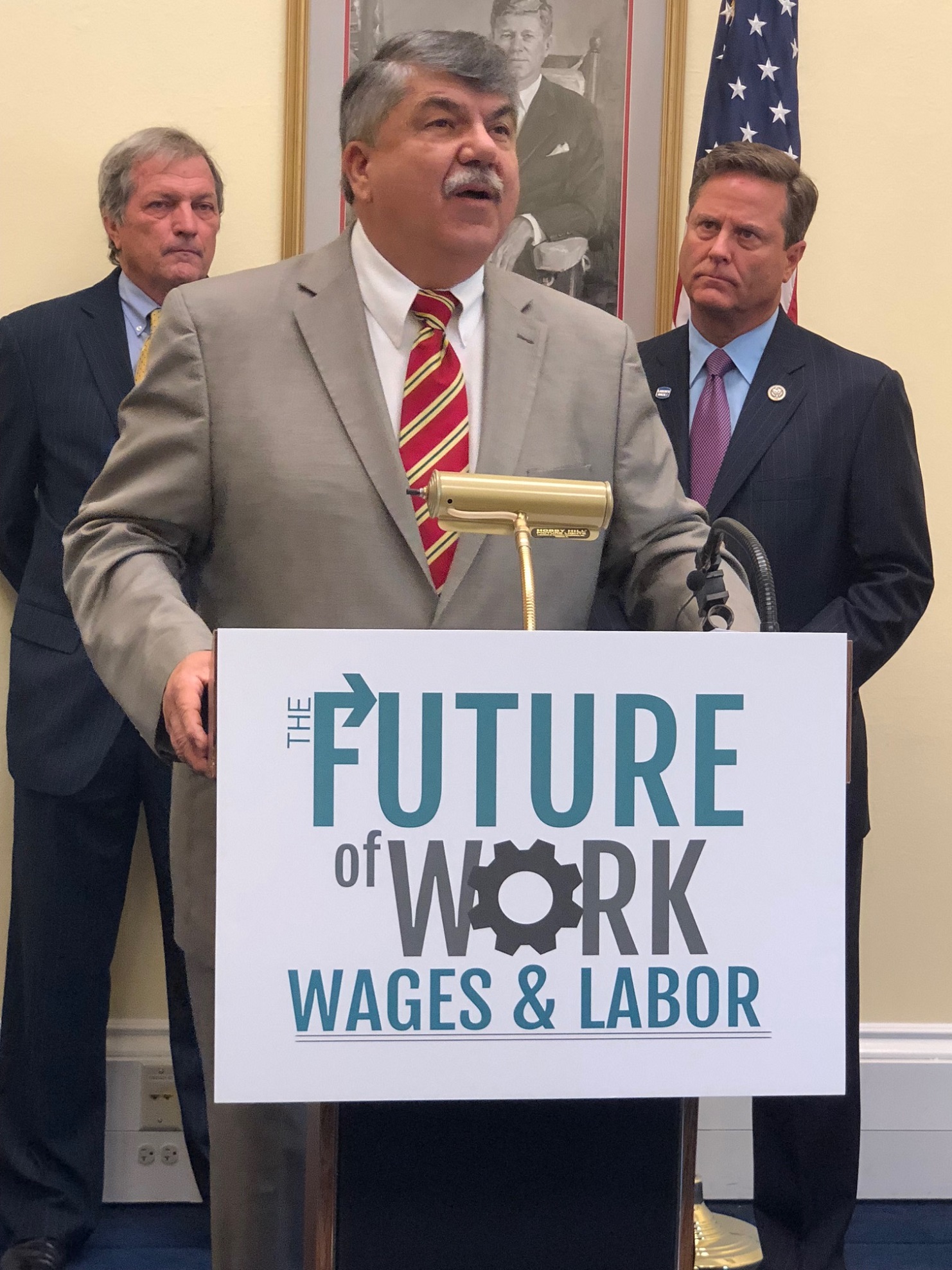
AFL-CIO President Richard Trumka delivered the following remarks at a press conference unveiling "The Future of Work, Wages, and Labor," a report by four members of Congress from diverse districts across the country focused on building power and prosperity for working people.
Good morning.
I want to start by thanking Representatives (Mark) DeSaulnier, (Mark) Pocan, (Donald) Norcross and (Debbie) Dingell for their outstanding work. And as always, I want to recognize the tremendous leadership of Ranking Member Bobby Scott.
This thoughtful and detailed report provides an important foundation for building an economy centered on good jobs, rising wages and strong worker bargaining power.
You’ve put a lot of bold ideas forward here...some that we strongly support and others that deserve serious discussion. Your willingness to think outside the box as we look for ways to tackle inequality is the right approach at the right time.
At the AFL-CIO, we are nearly a year into our own comprehensive process focused on shaping the future of work so it works for working people.
Over the weekend, Sarita Gupta, Stephen Lerner and Joseph McCartin published a piece in the American Prospect entitled “It’s Not the 'Future of Work,' It’s the Future of Workers That’s in Doubt.” I encourage you to read it. They make the important point that the concentration of wealth and power represents the greatest threat to our future, not computerization or artificial intelligence.
With that in mind, I believe the future of work debate comes down to two fundamental questions.
-
What happens to a system that fails to provide a sustainable standard of living for its people?
-
Who shares in the benefits of technological innovation?
If technology is used to further concentrate economic power in the hands of the wealthy few, I’m not sure our system of government...our way of life...can ultimately survive.
But if we make political and moral choices to ensure technology is a tool for broadly shared prosperity, we can foster a new era of economic equality and opportunity.
Working people have made it perfectly clear which direction we prefer. Collective action is on the rise in America. 262,000 new members joined unions in 2017...and here’s the best part...three quarters of them were under the age of 35. New research from MIT shows half of non-union workers would vote for a union today if given the chance. And Gallup released a poll last week showing the popularity of unions at 62 percent...a 15-year high.
And that brings us to the second question: how do we ensure the benefits of technology are shared broadly by all of society?
First, let me make something perfectly clear: we embrace innovation.
Auto workers are designing and building nextgen automobiles that will save countless lives on the road. Electrical workers are using virtual reality to train a new wave of apprentices, handing them tools that I couldn't have dreamed of when I first stepped foot in a union hall. Steelworkers are advocating for exoskeleton technology—to help workers avoid injuries on the job. We aren't just embracing the future of work. We're living it and pioneering it every single day.
But we will not allow 21st century technology to be used as an excuse for 19th century labor practices.
This moment of historic collective action calls for a different approach, one where technology leads to better pay and working conditions for everyone and even greater prosperity for us to share in.
And that requires having a real voice in our economy and at the bargaining table.
The labor movement is committed to doing everything in our power to keep winning that voice in 2018 and beyond.
Thank you again for this report.

